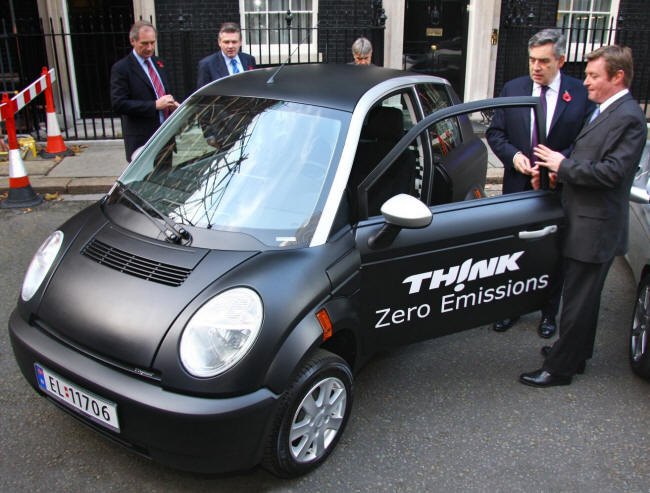Think About It
Say you’re a small electric car maker in bankruptcy restructuring. You have no current production, you’ve only ever built a couple thousand street-legal cars and you’re operating on $6M in interim financing. With credit markets in turmoil and the car biz taking a beating, what’s a game changer to do? Luckily for you, the various governments of the United States seem to have acquired the reputation of being run by the kind of people PT Barnum would have loved. And as Autoweek reports, this opportunity has even the tiniest mice in global auto game warming up their vocal cords, hoping to pull off an American taxpayer-assisted roar.
The scenario above represents the very same conditions that Norwegian Ford spin-off Think finds itself in. Think’s CEO Richard Canny tells AW that his firm is “in talks” with eight US states in hopes of establishing a US technical center and assembly plant. Why? “Federal and state incentives for the manufacture of batteries and electric vehicles are a factor in the firm’s decision to expand its North American presence.” And “in talks” sounds so much better than “looking for the biggest sucker.” Canny also revealed plans to file for Department of Energy Section 136 loans.
The plan, as such, is to introduce Think’s updated EVs to the US market; to fleets and demonstrators in 2010 and the retail market in 2011. Current production capacity is 5k per year. In Norway. Think’s current model is an updated version of the vehicle offered in California by Ford, and is fully compliant with European crash test standards. The EV’s battery range is currently 100 miles, with top speeds hitting a heady 62 mph. But, says Canny, “the company aims to increase top speed to 70 or 75 mph and to further improve driving range and acceleration.”
“The technology is ready, there’s expanding awareness and interest in the marketplace, so all it takes is the financing to make it happen,” says Think’s plucky CEO. “Unfortunately, the global economic crisis arrived just as the company was entering its most capital-intensive phase.” Not that Think is looking at an all-government solution to this problem. “We’re still pursuing private investment,” says Canny. “The Department of Energy loan is not something we see as a substitute for capitalization, but a supplement that makes our operating plan going forward more effective.” But since private loans aren’t exactly readily available right now to firms in Think’s precarious (to put it nicely) postition, it’s up to governments to blink first.
More by Edward Niedermeyer
Latest Car Reviews
Read moreLatest Product Reviews
Read moreRecent Comments
- Michael S6 Very confusing if the move is permanent or temporary.
- Jrhurren Worked in Detroit 18 years, live 20 minutes away. Ren Cen is a gem, but a very terrible design inside. I’m surprised GM stuck it out as long as they did there.
- Carson D I thought that this was going to be a comparison of BFGoodrich's different truck tires.
- Tassos Jong-iL North Korea is saving pokemon cards and amibos to buy GM in 10 years, we hope.
- Formula m Same as Ford, withholding billions in development because they want to rearrange the furniture.


































Comments
Join the conversation
Like we need another premium golf cart on the road enjoying temporary easements of the rules and regulations that were put in place to keep people from getting killed.
But Tata will be there first.